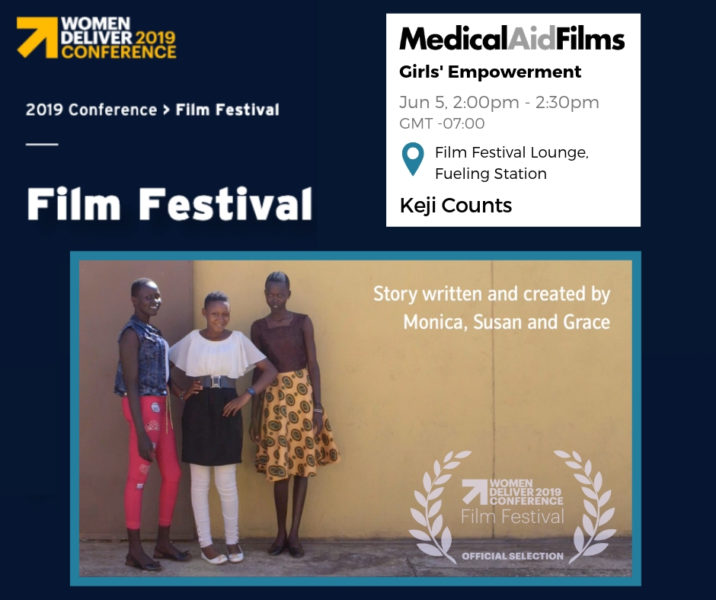‘Keji Counts’ screens at the Women Deliver Film Festival 2019
Produced by the UK aid-funded Girls’ Education South Sudan (GESS) programme and Medical Aid Films, this inspiring participatory project will be screened at the Women Deliver Film Festival in Vancouver on Wednesday 5th June.
GUEST BLOG from Hannah Rollings, GESS
The Women Deliver conference lands at a critical time for the GESS programme, which has very recently launched the second phase of the Programme – another 5-year commitment from UK aid to the education sector of South Sudan.
Keji Counts – one of three groundbreaking animations – highlights the financial barrier to education in South Sudan. Research from the first phase of the GESS Programme reports that money is one of the principal barriers to girls’ education.
The film follows a young girl having to miss school as her mother thinks fees are too expensive. Instead she works with her mother at their tomato stall in the market. Keji’s maths skills mean she is able to help her mother improve their business, which eventually enables her mother to send Keji and her siblings back to school.
Watch the film:
Film as a “powerful medium”
The animations were created throughout a weeklong workshop in Juba in May 2017. Following the workshop, the drawings were turned into moving images, animating the characters and scenes, and adding sound effects to bring the pictures to life. These were edited alongside the interviews with the participants, who came from Juba, Rumbek, Yambio and the Juba Protection of Civilians (PoC) site. It is the first time that such an approach has been used in South Sudan.
“Film is a powerful medium to raise awareness and this is an incredible opportunity to highlight the issues that South Sudanese girls are facing.”
Akuch de Garang MBE, GESS Team Leader
The GESS Team Leader, Akuch de Garang MBE, pointed out that the girls’ “personal experiences and challenges in accessing education served as the inspiration for each story. Film is a powerful medium to raise awareness and this is an incredible opportunity to highlight the issues that South Sudanese girls are facing”.
In South Sudan, just over 10% of school-age girls start primary school at the correct age and, of those, the majority will not complete their education. In 2017, 138,578 girls started primary school, but only 3,816 completed secondary school in South Sudan.

GESS cash transfers aim to reduce the economic barriers to girls enrolling in school and staying in school, by offsetting some of the direct and indirect financial barriers to education, which can be the most prohibitive factors to the enrolment and retention of girls. By the end of the 5-year programme, GESS delivered cash transfers to over 195,000 individual girls.
Watch our introductory film about this ground-breaking Girls’ Education South Sudan Programme.